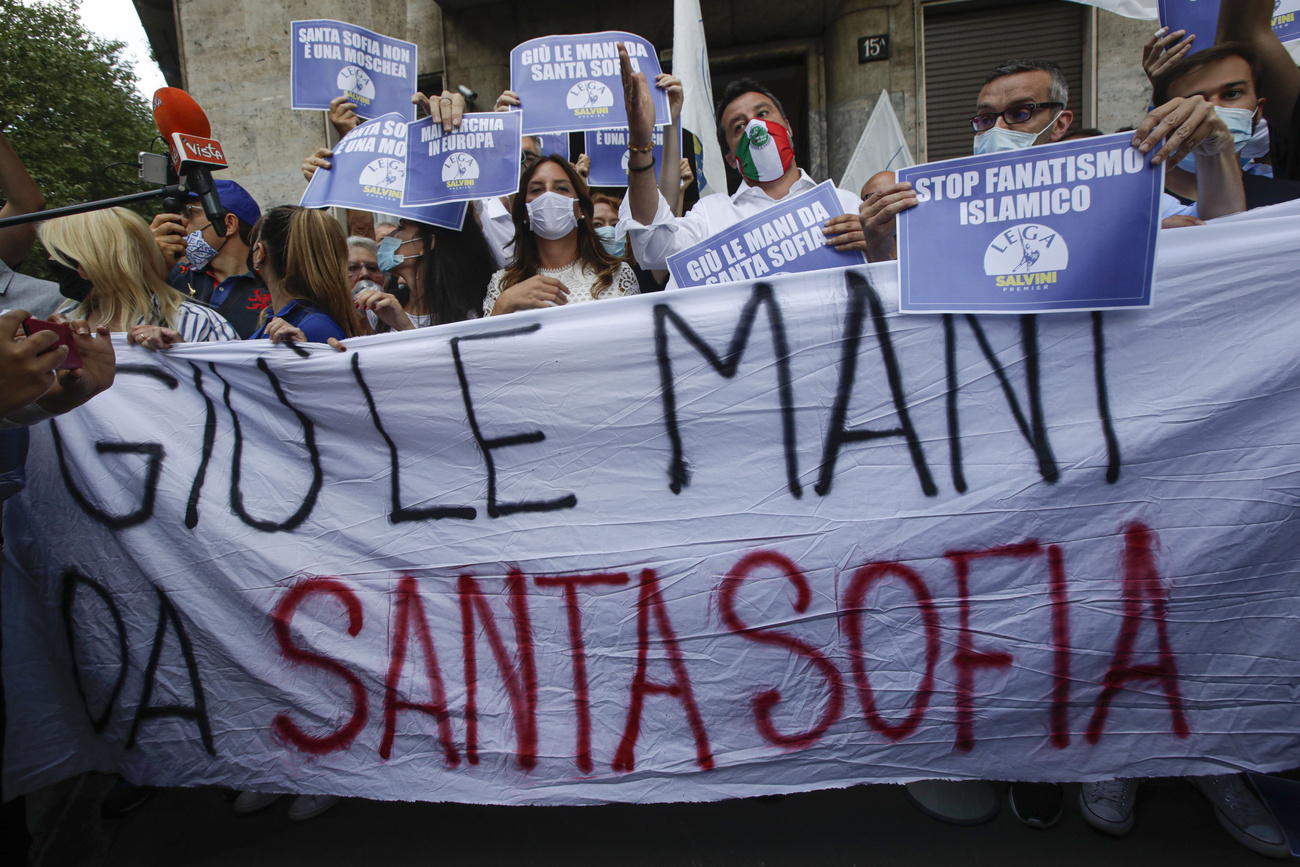
Hagia Sophia’s mosque conversion has Swiss fallout

The Turkish government’s decision to revoke museum status of Istanbul’s most famous building, the Hagia Sophia, could cost a faraway Swiss company a lucrative contract, Turkish media reported.
Originally a Byzantine cathedral, the Hagia Sophia was turned into a mosque after Istanbul’s conquest by the Ottoman Empire. It had been a museum for the last 86 years.
On July 10, President Recep Tayyip Erdogan of Turkey announced that the site would be used again as a mosque following a court ruling that declared its historic conversion into a mosque illegal. The decision has caused controversy both inside and outside the country.

The move is expected to have financial consequences, as the Hagia Sophia is one of the key tourism sites in Istanbul. In 2019, had 3.7 million visitorsExternal link and was the most visited museum in Turkey. The entry price of CHF10 ($10.6) upwards made it a lucrative business.
But now the ticketing business is in question not only for the city but also for the Swiss company said to run its ticketing system.
According to the Turkish publication Daily SabahExternal link, SICPA, a Lausanne-based company, had won a Turkish ministry of culture and tourism tender in 2018 to provide this service. SICPA’s products are now used in 69 museums and cultural sites across Turkey, it said.
The Turkish news portal T24 reported earlier this weekExternal link that the future of the contract was in jeopardy. The Turkish media has speculated that the company would be compensated because the contract period should have lasted at least another seven years.
In Switzerland, the firm is best known for its security inks on bank notes, including last year’s new CHF100 note.
When contacted, SICPA stated that it worked “in the spirit of long-term cooperation” with government institutions and did not in general comment on their sovereign decisions.
The company produces the inks for 170 currencies around the world, including the US dollar and the Euro, and is considered a global leader in this domain. It is subject to strict confidentiality agreements with central banks and makes no details about this sensitive data public.External link SICPA also provides inks for sensitive documents.
In Switzerland it was recently announced that SICPA has been helping to develop digital health passports that could be used to certify who is immune to Covid-19.
The firm employs around 3,000 people and has belonged to the Amon family for three generations. No company figures have been officially released, but it is estimated in the Swiss mediaExternal link that turnover is CHF1- CHF1-5 billion per year.
Adapted from German

In compliance with the JTI standards
More: SWI swissinfo.ch certified by the Journalism Trust Initiative






























You can find an overview of ongoing debates with our journalists here . Please join us!
If you want to start a conversation about a topic raised in this article or want to report factual errors, email us at english@swissinfo.ch.